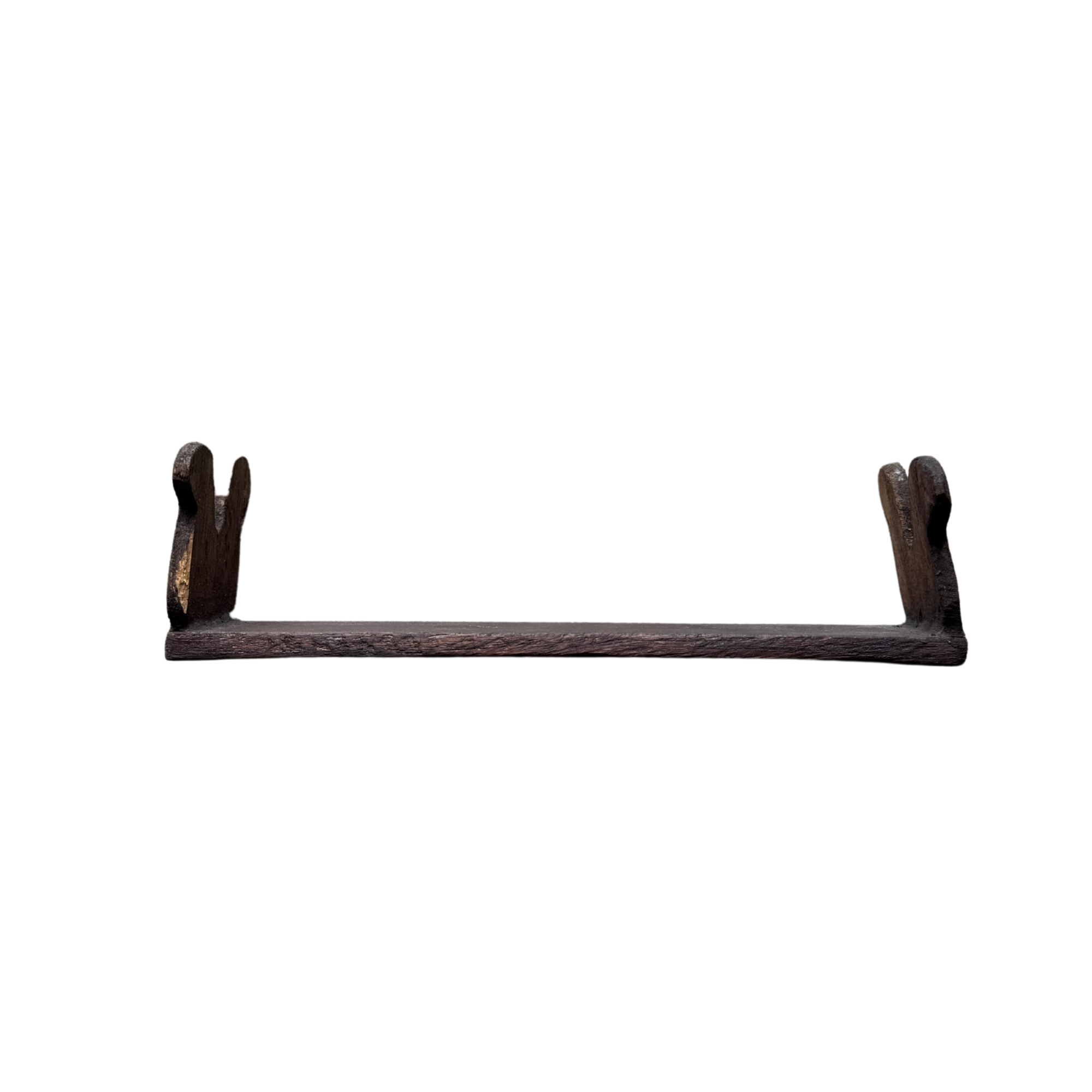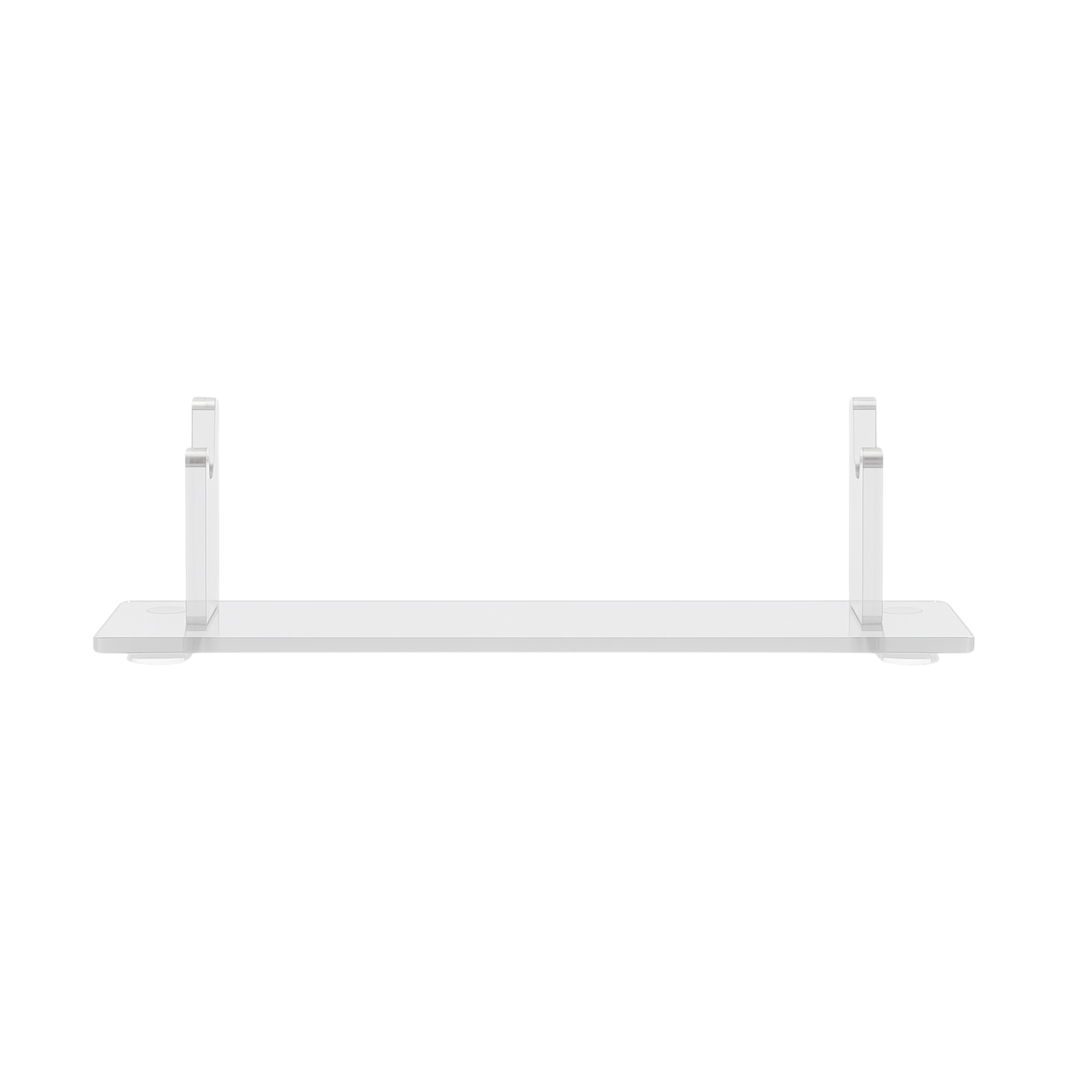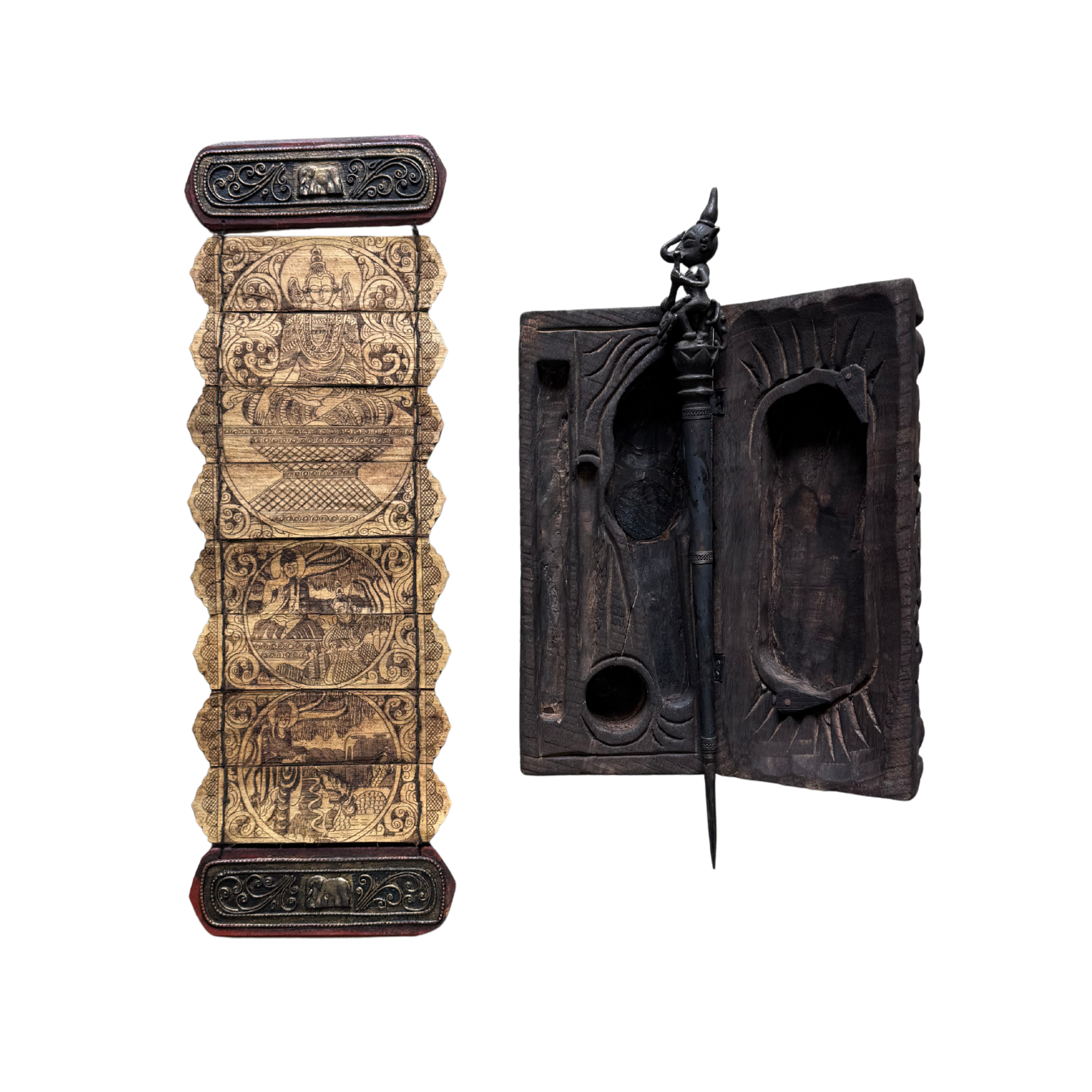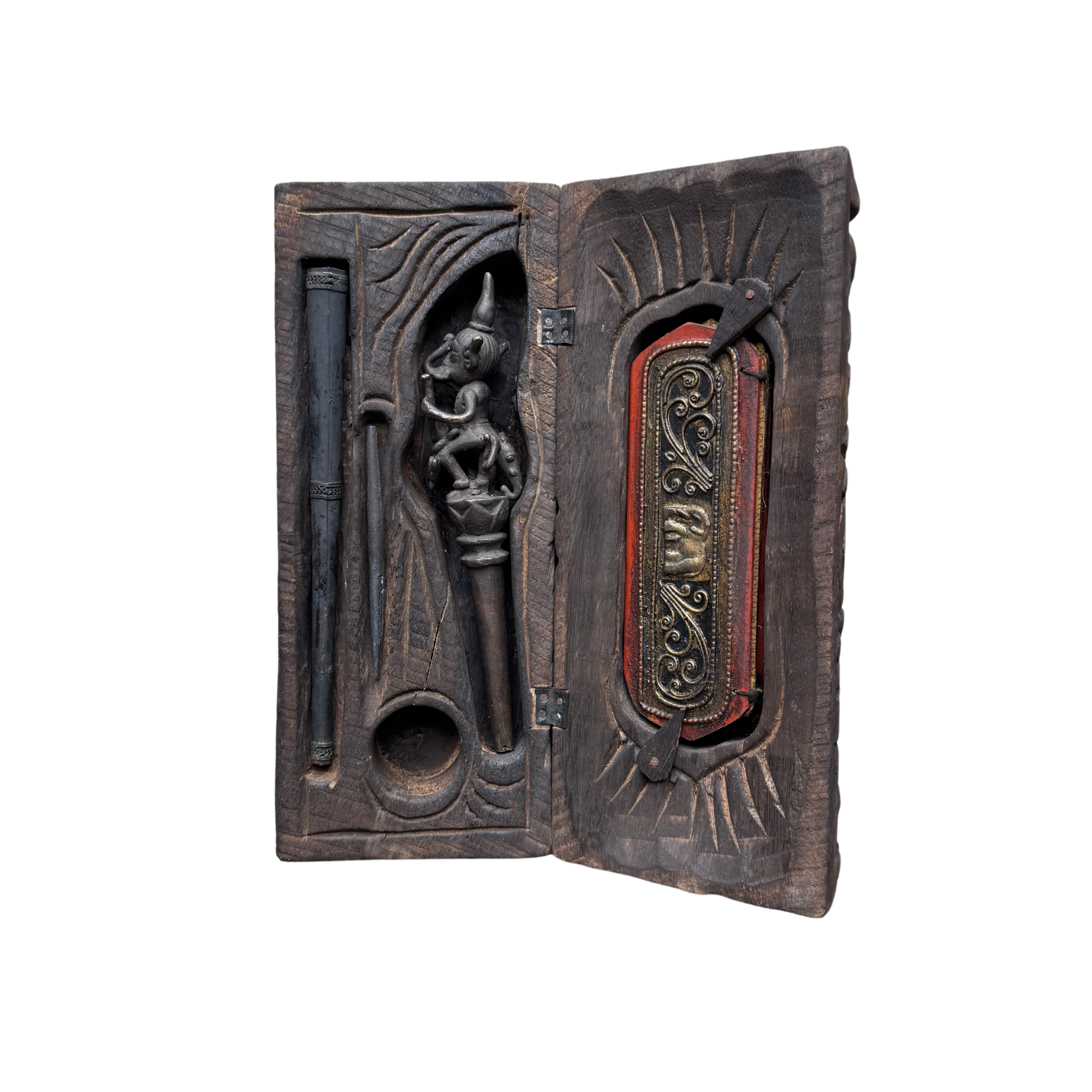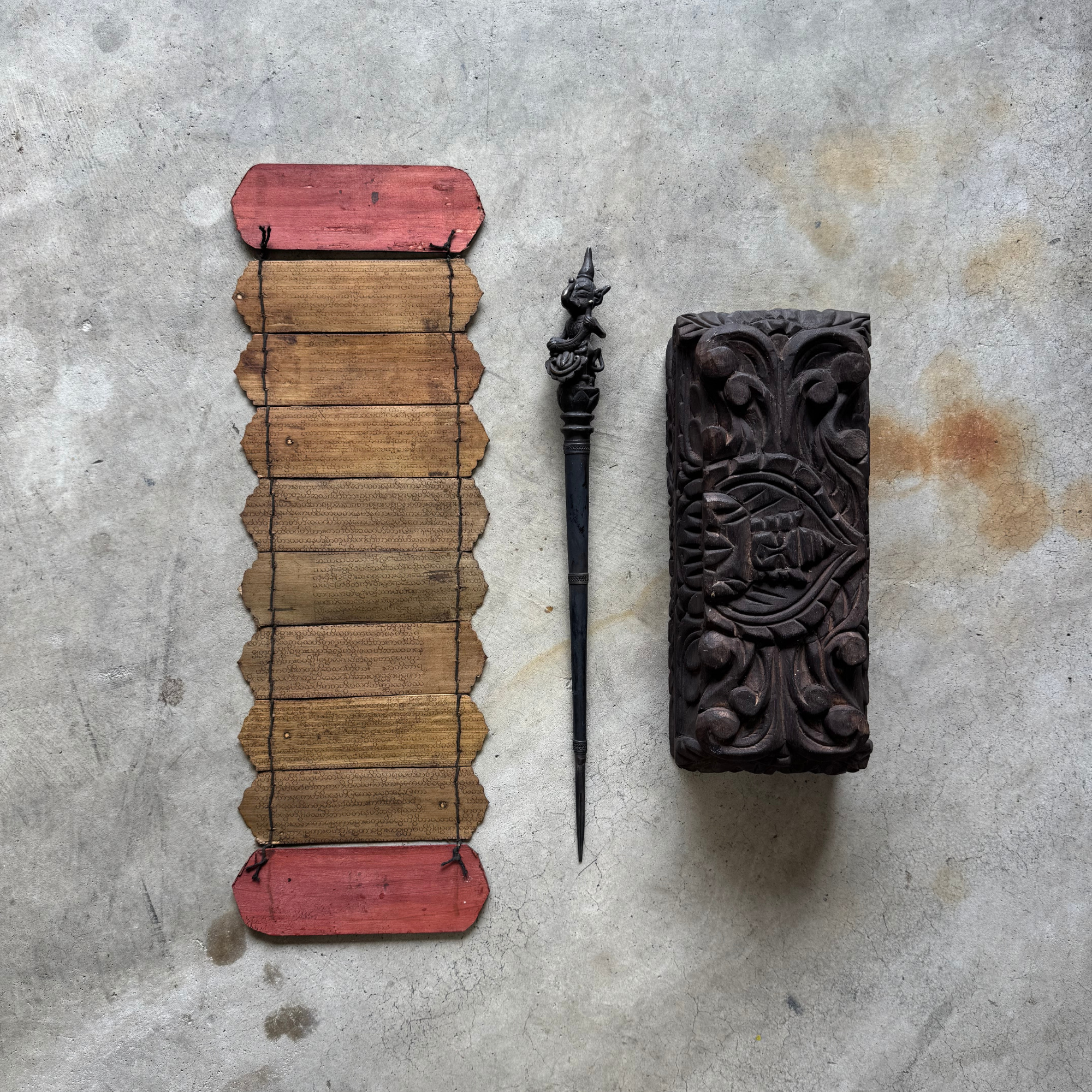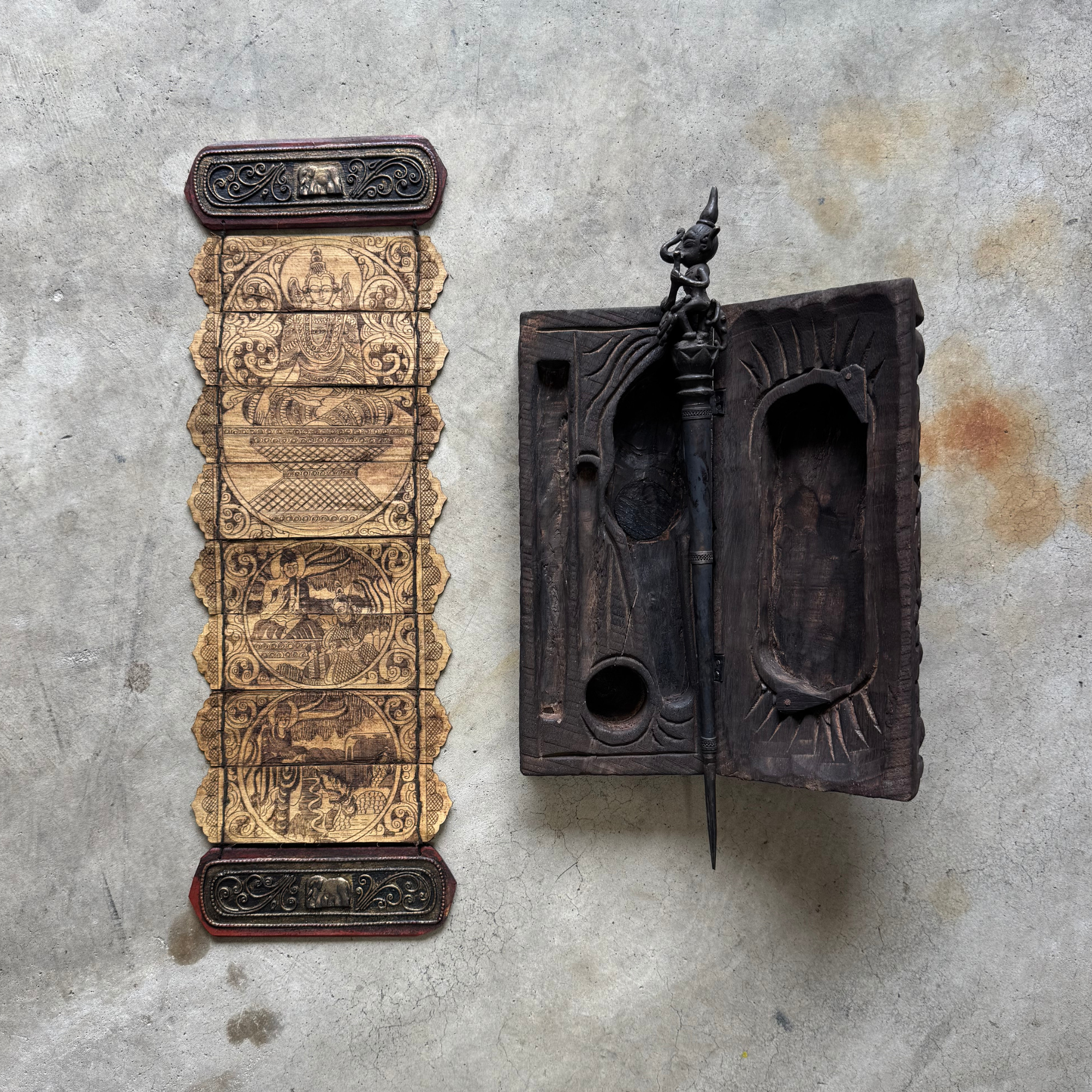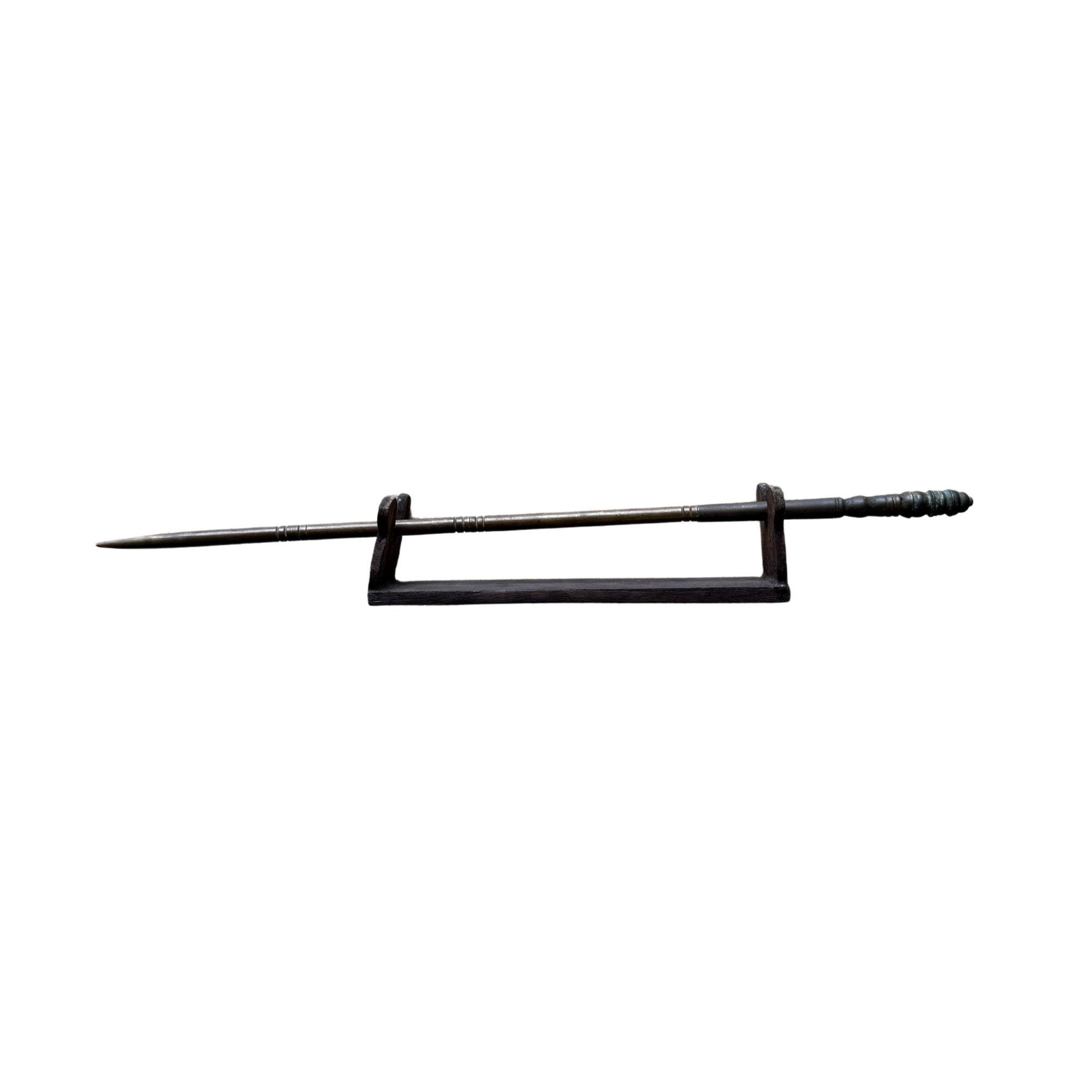
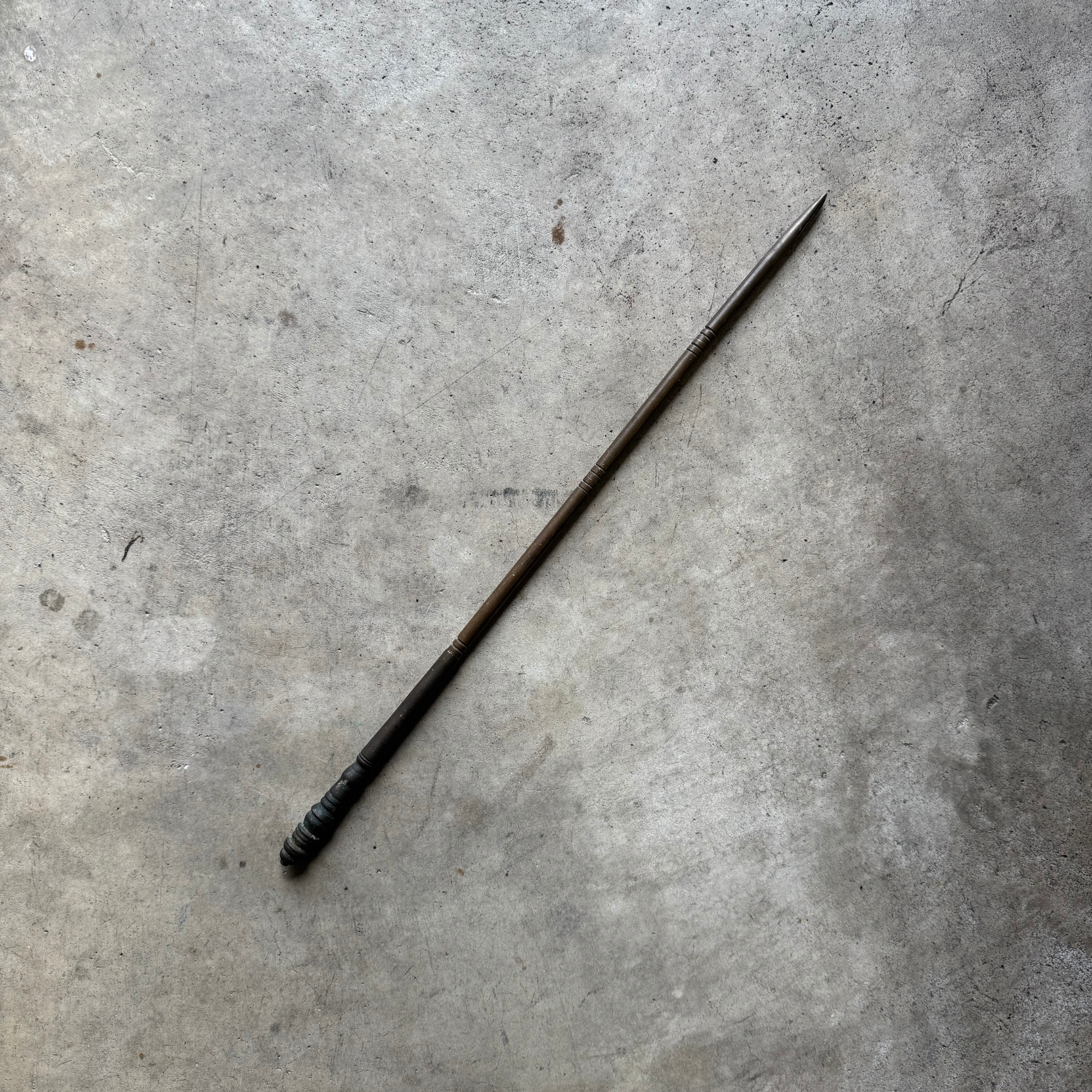

SACRED ARTIFACT — Brass Sak Yant Tattoo Needle (Karen Region, 1980s)
This hand-forged brass Sak Yant tattoo needle originates from the Karen region of Northern Thailand, crafted and used during the 1980s in the ritual art of sacred tattooing. Forged in brass — a metal revered for its durability, endurance, and ritual resonance — the needle carries both the mark of craftsmanship and the weight of spiritual transmission.
Unlike modern machine-made tools, this needle was consecrated through use, directly tied to the esoteric lineage of yantra tattooing practiced by monks and ajarns. More than a tool, it is a ritual instrument — a vessel of survival, devotion, and mysticism, forged into one enduring form.
Details
Origin: Karen region, Northern Thailand
Era: 1980s
Material: Hand-forged brass
Dimensions: 18.5"
Condition: Vintage, with patina and surface wear consistent with ritual use
Features: Long, tapered form for Sak Yant tattooing; ritual tool with aged presence
Note: Display stand shown in photos is not included
Spiritual Significance
Tool of Transmission: Once used to inscribe yantras and mantras into the skin, carrying blessings of empowerment and protection
Brass as Medium: Symbol of endurance and ritual strength, brass embodies lasting spiritual energy
Karen Lineage: Rooted in a region blending Buddhist, animist, and protective practices, giving Sak Yant tattooing its distinct mystical heritage
Not merely a tool — but a ritual instrument, once carrying prayers, spells, and blessings into the skin, leaving talismans etched upon the body.
Note on Sacred Objects
Our pieces often originate in Buddhist traditions, yet their essence is universal. You do not need to be Buddhist — nor hold any specific beliefs — to welcome them into your life. These objects are not bound to religious worship; they are reminders of awareness, compassion, and our shared connection as human beings. Whether worn, carried, or placed in your space, they serve as anchors for mindfulness and presence — a quiet reminder that we are all connected.
This hand-forged brass Sak Yant tattoo needle originates from the Karen region of Northern Thailand, crafted and used during the 1980s in the ritual art of sacred tattooing. Forged in brass — a metal revered for its durability, endurance, and ritual resonance — the needle carries both the mark of craftsmanship and the weight of spiritual transmission.
Unlike modern machine-made tools, this needle was consecrated through use, directly tied to the esoteric lineage of yantra tattooing practiced by monks and ajarns. More than a tool, it is a ritual instrument — a vessel of survival, devotion, and mysticism, forged into one enduring form.
Details
Origin: Karen region, Northern Thailand
Era: 1980s
Material: Hand-forged brass
Dimensions: 18.5"
Condition: Vintage, with patina and surface wear consistent with ritual use
Features: Long, tapered form for Sak Yant tattooing; ritual tool with aged presence
Note: Display stand shown in photos is not included
Spiritual Significance
Tool of Transmission: Once used to inscribe yantras and mantras into the skin, carrying blessings of empowerment and protection
Brass as Medium: Symbol of endurance and ritual strength, brass embodies lasting spiritual energy
Karen Lineage: Rooted in a region blending Buddhist, animist, and protective practices, giving Sak Yant tattooing its distinct mystical heritage
Not merely a tool — but a ritual instrument, once carrying prayers, spells, and blessings into the skin, leaving talismans etched upon the body.
Note on Sacred Objects
Our pieces often originate in Buddhist traditions, yet their essence is universal. You do not need to be Buddhist — nor hold any specific beliefs — to welcome them into your life. These objects are not bound to religious worship; they are reminders of awareness, compassion, and our shared connection as human beings. Whether worn, carried, or placed in your space, they serve as anchors for mindfulness and presence — a quiet reminder that we are all connected.


